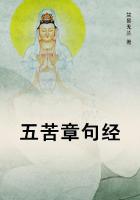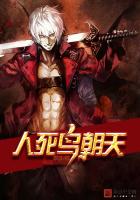1. The Sacrament of First-Fruits
WE have now seen that the corn-spirit is represented sometimes in human, sometimes in animal form, and that in both cases he is killed in the person of his representative and eaten sacramentally. To find examples of actually killing the human representative of the corn-spirit we had naturally to go to savage races; but the harvest-suppers of our European peasants have furnished unmistakable examples of the sacramental eating of animals as representatives of the corn-spirit. But further, as might have been anticipated, the new corn is itself eaten sacramentally, that is, as the body of the corn-spirit. In Wermland, Sweden, the farmer's wife uses the grain of the last sheaf to bake a loaf in the shape of a little girl; this loaf is divided amongst the whole household and eaten by them. Here the loaf represents the corn-spirit conceived as a maiden; just as in Scotland the corn-spirit is similarly conceived and represented by the last sheaf made up in the form of a woman and bearing the name of the Maiden. As usual, the corn-spirit is believed to reside in the last sheaf; and to eat a loaf made from the last sheaf is, therefore, to eat the corn-spirit itself. Similarly at La Palisse, in France, a man made of dough is hung upon the fir-tree which is carried on the last harvest-waggon. The tree and the dough-man are taken to the mayor's house and kept there till the vintage is over. Then the close of the harvest is celebrated by a feast at which the mayor breaks the dough-man in pieces and gives the pieces to the people to eat.
In these examples the corn-spirit is represented and eaten in human shape.
In other cases, though the new corn is not baked in loaves of human shape, still the solemn ceremonies with which it is eaten suffice to indicate that it is partaken of sacramentally, that is, as the body of the corn-spirit. For example, the following ceremonies used to be observed by Lithuanian peasants at eating the new corn. About the time of the autumn sowing, when all the corn had been got in and the threshing had begun, each farmer held a festival called Sabarios, that is, the mixing or throwing together. He took nine good handfuls of each kind of cropwheat, barley, oats, flax, beans, lentils, and the rest; and each handful he divided into three parts. The twentyseven portions of each grain were then thrown on a heap and all mixed up together.
The grain used had to be that which was first threshed and winnowed and which had been set aside and kept for this purpose. A part of the grain thus mixed was employed to bake little loaves, one for each of the household; the rest was mixed with more barley or oats and made into beer. The first beer brewed from this mixture was for the drinking of the farmer, his wife, and children; the second brew was for the servants. The beer being ready, the farmer chose an evening when no stranger was expected. Then he knelt down before the barrel of beer, drew a jugful of the liquor and poured it on the bung of the barrel, saying, O fruitful earth, make rye and barley and all kinds of corn to flourish. Next he took the jug to the parlour, where his wife and children awaited him. On the floor of the parlour lay bound a black or white or speckled (not a red) cock and a hen of the same colour and of the same brood, which must have been hatched within the year. Then the farmer knelt down, with the jug in his hand, and thanked God for the harvest and prayed for a good crop next year. Next all lifted up their hands and said, O God, and thou, O earth, we give you this cock and hen as a free-will offering. With that the farmer killed the fowls with the blows of a wooden spoon, for he might not cut their heads off. After the first prayer and after killing each of the birds he poured out a third of the beer. Then his wife boiled the fowls in a new pot which had never been used before. After that, a bushel was set, bottom upwards, on the floor, and on it were placed the little loaves mentioned above and the boiled fowls. Next the new beer was fetched, together with a ladle and three mugs, none of which was used except on this occasion. When the farmer had ladled the beer into the mugs, the family knelt down round the bushel. The father then uttered a prayer and drank off the three mugs of beer. The rest followed his example. Then the loaves and the flesh of the fowls were eaten, after which the beer went round again, till every one had emptied each of the three mugs nine times. None of the food should remain over; but if anything did happen to be left, it was consumed next morning with the same ceremonies.
The bones were given to the dog to eat; if he did not eat them all up, the remains were buried under the dung in the cattle-stall. This ceremony was observed at the beginning of December. On the day on which it took place no bad word might be spoken.
Such was the custom about two hundred years or more ago. At the present day in Lithuania, when new potatoes or loaves made from the new corn are being eaten, all the people at table pull each other's hair. The meaning of this last custom is obscure, but a similar custom was certainly observed by the heathen Lithuanians at their solemn sacrifices. Many of the Esthonians of the island of Oesel will not eat bread baked of the new corn till they have first taken a bite at a piece of iron. The iron is here plainly a charm, intended to render harmless the spirit that is in the corn. In Sutherlandshire at the present day, when the new potatoes are dug all the family must taste them, otherwise the spirits in them [the potatoes] take offence, and the potatoes would not keep. In one part of Yorkshire it is still customary for the clergyman to cut the first corn; and my informant believes that the corn so cut is used to make the communion bread. If the latter part of the custom is correctly reported (and analogy is all in its favour), it shows how the Christian communion has absorbed within itself a sacrament which is doubtless far older than Christianity.

